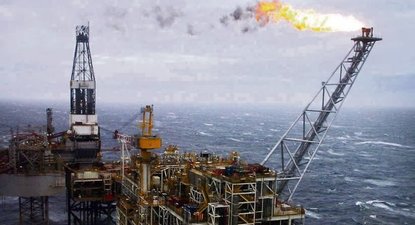
A quiet hurricane season in the US could be the latest factor bearing down on world oil prices and prices could stay depressed for months to come, a leading Irish-based expert has predicted. A number of factors — ranging from a fight for market share raging between Opec and some non-Opec cartel producers, fields in southern Iraq pumping out more oil, and now the prospects for a quiet hurricane season later this summer that will keep rigs working around the clock in the Gulf of Mexico — have all acted to keep oil prices low. In recent days, an apparent economic slowdown in China, one of the world’s top two energy consumers, that led to the devaluation of its currency, have come into play. A bid by Opec producers to squeeze out suppliers in the US and Russia remains a significant factor in the supply and demand battle for world markets because it is taking longer than OPEC expected, said Paul Harris, head of natural resource risk management at Bank of Ireland Global Markets.
READ NEXT Banks must learn from scandals
READ NEXT Banks must learn from scandals
“This year will be a year of oversupply” said Mr Harris, as US output has been more robust than the Opec had expected.
He predicts that benchmark Brent crude oil price — which, at $49.50, is trading close to levels on the eve of the international financial crisis in 2008 — will recover by the end of this year to $60 a barrel, as winter in the northern hemisphere boosts demand for energy.
Weeks may yet pass before a recovery in prices takes hold and there is a potential for oil prices to fall to a floor of $45 a barrel. Mr Harris said predictions for a quiet hurricane season in the US mean production may not be disrupted this year. Longer term, the fundamentals of the world economy are significantly healthier than back in 2008 and prices are likely to firm as a result.
He said: “China and the US are the two largest users of oil. On the supply side, Opec has tried to maintain its market share, while the US recovery has been weaker than many predicted and the slowdown in the Chinese economy appears to be more rapid than many expected.”
The International Energy Agency yesterday said the global oil glut will last through 2016 as the strongest demand growth in five years and faltering supply fail to clear the surplus. Stockpiles won’t be diminished until the fourth quarter of next year, or even later if sanctions on Iranian crude are lifted, the agency said.
“Global supply continues to grow at a breakneck pace,” the IEA said. Opec kept output near a three-year high at 31.79m barrels a day in July as record Iraqi production helped offset a pull-back by Saudi Arabia.
SOURCE
He predicts that benchmark Brent crude oil price — which, at $49.50, is trading close to levels on the eve of the international financial crisis in 2008 — will recover by the end of this year to $60 a barrel, as winter in the northern hemisphere boosts demand for energy.
Weeks may yet pass before a recovery in prices takes hold and there is a potential for oil prices to fall to a floor of $45 a barrel. Mr Harris said predictions for a quiet hurricane season in the US mean production may not be disrupted this year. Longer term, the fundamentals of the world economy are significantly healthier than back in 2008 and prices are likely to firm as a result.
He said: “China and the US are the two largest users of oil. On the supply side, Opec has tried to maintain its market share, while the US recovery has been weaker than many predicted and the slowdown in the Chinese economy appears to be more rapid than many expected.”
The International Energy Agency yesterday said the global oil glut will last through 2016 as the strongest demand growth in five years and faltering supply fail to clear the surplus. Stockpiles won’t be diminished until the fourth quarter of next year, or even later if sanctions on Iranian crude are lifted, the agency said.
“Global supply continues to grow at a breakneck pace,” the IEA said. Opec kept output near a three-year high at 31.79m barrels a day in July as record Iraqi production helped offset a pull-back by Saudi Arabia.
SOURCE